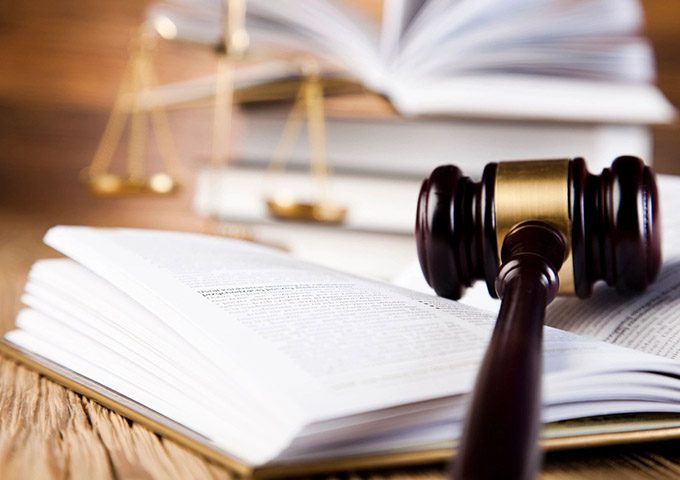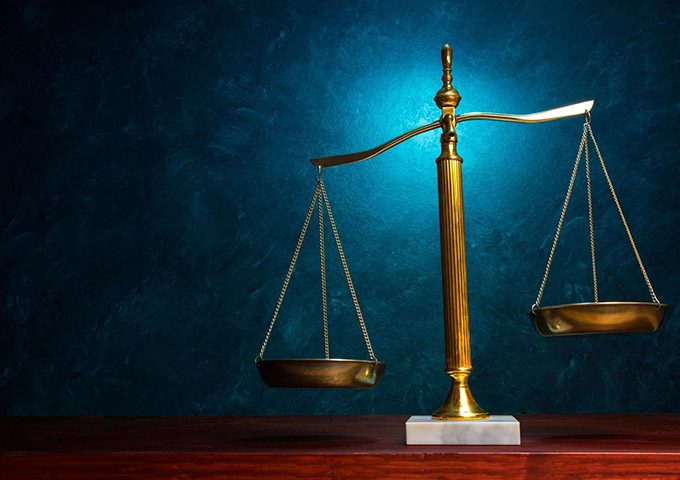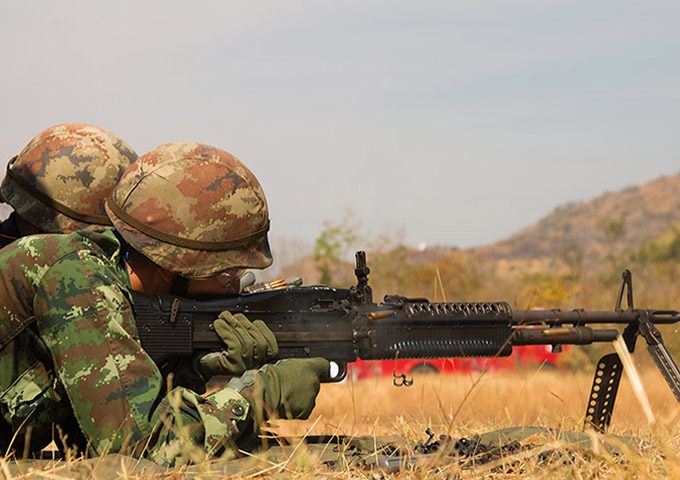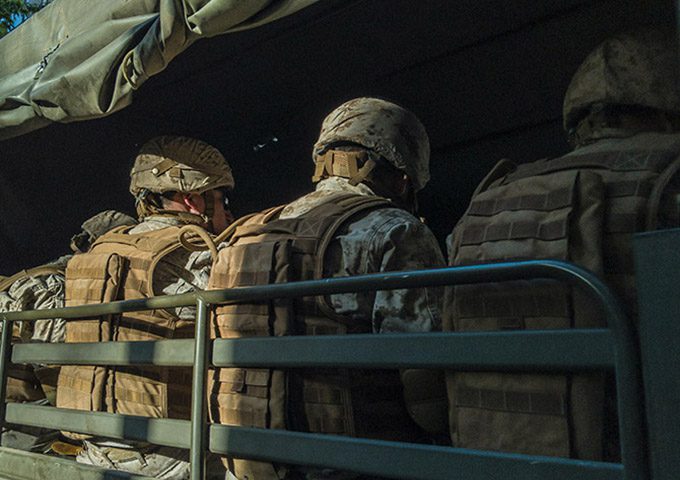Criminal Defense Guide To Help You Win Your Domestic Violence Case
Domestic violence prosecutions are second only to DUI prosecutions in California in sheer numbers of criminal court cases. Every year, well over three million domestic violence incidents are prosecuted in the courts around the United States.


Domestic Violence Consists Of Several Violent Crimes
Domestic Violence Battery without injury (California Penal Code section 243 (e)(1)). This crime can be prosecuted as a misdemeanor crime only. Misdemeanor crimes are punishable by up to 1 year in county jail and/or a $1000 fine, and felony crimes are punishable from 16 months to life in state prison.
Domestic Violence Battery with injury (California Penal code section 273.5) is considered a “wobbler,” a crime that can be prosecuted either as a misdemeanor or a felony, based mainly on the severity of injuries and force involved in the incident.
Criminal Threats (California Penal Code section 422) is also a violent crime involving threats that can be prosecuted either as a misdemeanor or a felony. The seriousness of the circumstances in which the alleged threat is made often determines if the criminal threat case is prosecuted as a misdemeanor or a felony.
False Imprisonment (California Penal Code section 236/237) can only be prosecuted as a misdemeanor crime of violence.
Child Abuse (California Penal Code section 273d) is a “wobbler.” Child abuse can be prosecuted as a misdemeanor or felony, depending on the seriousness of the alleged incident.
Child Endangerment (California Penal Code section 273a) is as the same as child abuse. The more severe endangerment caused to the child, the more likely the endangerment will be prosecuted as a felony.
Violation of Restraining Order (California Penal Code section 273.6) can only be prosecuted as a misdemeanor.
Tampering with a phone line (California Penal Code section 591) can only be prosecuted as a misdemeanor.
Vandalism (California Penal Code section 594) is a wobbler. Misdemeanor if property damage exceeds $400; Felony if the damage is $10,000 or more.
Elder Abuse (Financial & Physical) (California Penal Code section 368) a wobbler. The elder abuse alleged more serious; the more likely the charge will be prosecuted as a felony.
Battery with great or serious bodily injury (California Penal Code section 243(d)) Punished only as a felony and will qualify as a “Strike” on your criminal record.
Child Neglect (California Penal Code section 270 can only be prosecuted as a misdemeanor under California law.)
Child Abuse (California Penal Code, sections 273(d) and 273a.)
Aggravated Assault (California Penal Code sections 245 (a)(1)-(4))
PC 245 (a)(1): Assault with a deadly weapon.
PC 245 (a)(2) Assault with a firearm.
PC 245 (a)(3) Assault with a machine gun.
PC 245 (a)(4): Assault causing great bodily injury.

Contact Our Law Offices Immediately!!!!
For San Diego County (Except North): +1 (877) 524-2889
For San Diego County (North): +1 (760) 884-1498
For All Riverside County: +1 (951) 477-9990
The Conspiracy to Arrest and Prosecute Men in Domestic Violence Cases
Domestic violence arrests and prosecutions target men. The violence against Women Act (VAWA), funded with an annual budget of $1.6 billion, is destined for the war chests of police departments and prosecutors’ offices around the country. In return for this financial windfall, police and prosecutors around the country have adopted a discriminatory policy of arresting and prosecuting men when responding to domestic violence calls.
Indeed, there is a statistically provable conspiracy to blame the domestic violence problem on men. Domestic violence units in police departments and prosecuting agencies across the country have their entire budgets, payroll, equipment, and benefits paid out of funds they receive from the $1.6 billion annual VAWA budget administered by the United States Department of Justice.
How to Choose The Right Lawyer
Failure to obtain the very best and most qualified criminal defense attorney could result in the loss of an opportunity to have your domestic violence case rejected by the prosecution or to have your case dismissed before trial, or to achieve a not guilty verdict if you eventually have to defend the charges at a trial.
You will need an experienced and competent criminal defense lawyer to have a full protective order dismissed or modified to a less serious protective order that will allow you to contact the alleged victim if that is what you want. The attorney will also provide precious advice on whether or not it is too risky to modify the full protective order to a no negative contact order.
You will absolutely need the very most experienced and skillful criminal defense trial lawyer who is a battle-tested veteran in court and has an overwhelming record of not guilty or hung jury verdicts. The best criminal trial lawyers know when to resolve a case by plea bargain or move forward for a victory at jury trial. Guys, please do not procrastinate in hiring a criminal defense lawyer until the last moment.
How to Create a Winning Defense
The Initial Legal Consultation Must Be Confidential and Free
All legitimate and experienced criminal defense lawyers offer free, confidential consultations to potential clients. In many other areas of law, such as business law, the lawyer will charge a minimum of $250 for an initial confidential consultation. However, competent and experienced criminal defense lawyers offer confidential and free initial consultations to their potential clients in criminal cases.
Your Attorney Must Listen Carefully to Your Story
When potential clients come into my office for a free, confidential consultation, I make it a point to listen to their entire story without interruption from beginning to end. Then, I review the notes to ensure the potential client has not inadvertently forgotten to relate any essential facts.
Your Attorney Must Be Experienced and Skillful in Defending Domestic Violence Cases
Ask the attorney how they have defended previous clients and what outcomes were achieved in his past domestic violence cases. Experienced domestic violence defense lawyers should be able to describe specific cases and how these cases were defended to successful results and victories.
Your Attorney Must Be Able to Explain His Defense Strategy
The lawyer should be able to explain, step by step, how the defense strategy is going to produce a successful outcome in your domestic violence case. Many cases require additional investigation, so your attorney should be able to identify the areas that still require in-depth investigation.
How to Get Your Domestic Violence Case Rejected
The very best results often are attained when the potential client sets up consultations with criminal defense lawyers while they’re being investigated or after having just been arrested, awaiting the first scheduled court hearing while out on bail. The lawyer can devise a defense strategy, obtain important evidence and present it to the prosecutor before the prosecutor makes a decision to file charges.
If the defense lawyer is able to present substantial evidence to the prosecutor before the prosecutor has filed charges, the prosecutor is more likely to reject a case where the evidence presented by the defense lawyer has raised a reasonable doubt about the defendant’s guilt. Sometimes, the consultation is not sought until after charges have already been filed. In this case, the defense lawyer must still layout a successful defense strategy designed to persuade the prosecutor to dismiss the charges.
In domestic violence cases, if you’re under investigation but have not yet been arrested, or you have been arrested, but not yet, been formally charged with a crime, it is in your best interests to consult an experienced and skillful criminal defense attorney at your very earliest opportunity to see if the attorney can devise a defense strategy that will persuade the prosecutor to reject your case.
After all, it would be a lot less stressful to have your case rejected than to have to drag your weary ass to court a million times to defend criminal charges that have already been filed against you.
During your free, confidential consultation, you will tell the criminal defense lawyer all of the important facts that you believe he will need to create a successful defense strategy designed to get your case rejected by the prosecutor.
The lawyer, after hearing your story, will hire an experienced professional investigator, usually, a retired police detective, to interview witnesses, obtain sworn witness statements, diagram and take pictures and videos of the alleged crime scene and canvass the area for other potentially important witnesses for your defense. If an expert is necessary to evaluate certain physical evidence, the lawyer can hire an excellent and accomplished expert in that field to examine the evidence and prepare a written report on behalf of the defense strategy.
The lawyer will then set up a meeting with the prosecutor to persuade the prosecutor that there is insufficient evidence to prosecute you. All the lawyer has to do is present enough evidence to raise a reasonable doubt that you have committed the crime under investigation or for which you have been arrested but not yet, formally charged.
In advance of this meeting, your lawyer will assemble the sworn defense witness statements and expert-written reports and send them by email to the pr. The prosecutor will be well-informed of the purpose of the lawyer’s meeting in advance of the meeting. This will promote the chances for a rejection of your domestic violence case.
How to Get Your Domestic Violence Case Dismissed
Unfortunately, many people lose an opportunity to get their cases rejected by the prosecutor by waiting too long to hire a criminal defense lawyer. In some instances, people get arrested and then wait too long to hire a good criminal defense lawyer.
In some instances, a client is on probation for a crime and picks up a new criminal case while he is still on probation. In both situations, the client does not have an opportunity to have their cases rejected; however, there is still a very excellent chance to get the charges dismissed after they have been filed if your criminal defense lawyer takes many of the same steps that he took while trying to get a client’s case rejected: hiring a professional investigator to identify important defense witnesses and getting sworn statements from them.
In some cases, it may be necessary to employ the services of a particular expert to examine the evidence in the case and write a report that will persuade the prosecutor that there is insufficient evidence to prosecute. For example, I recently employed the services of a traffic reconstruction expert to look at physical evidence at the scene of a multi-vehicle collision. The expert concluded that my client’s driving could not have contributed to the cause of the accident. The expert’s report was evaluated by a prosecution expert who agreed with the opinion my expert reached in her report. The prosecutor decided to drop involuntary manslaughter charges against my client one month before trial!
There will be cases in which the prosecution will make a mistake in filing charges, but who will later change their minds when evidence is brought to their attention that they had not previously considered. The strategic employment of professional investigators and special experts will very often lead to the dismissal of charges after the prosecution had initially decided to file them.
How to Prepare A Winning Defense
Dismissal is not the best defense strategy. There are cases in which the prosecution will not consider a request to reject or dismiss domestic violence charges. Your criminal defense attorney should be prepared in such instances to prepare your case for trial or settlement by the plea agreement. Let’s get plea agreements out of the way because they are the least attractive options that I, as a trial attorney, often discard unless settling the case is absolutely in my client’s best legal interests.

When Settlement by Plea Bargain Is in Your Client’s Best Interests
Not every case is going to have a successful ending in the form of rejection, dismissal, or a favorable trial verdict. In many cases, settlement agreements, commonly known as plea bargains, are negotiated to offer my client a successful outcome based on his personal needs and wishes.
For example, I recently had a case preparing for trial defense.
It was a very solid defense based on numerous lies my client’s wife had told the police and prosecutors. However, my client’s wife was in her 9th month of pregnancy, and my client did not want to endanger the health and wellbeing of his wife or the new baby that would occur during a stressful jury trial. In this case, the prosecutor knew I had a strong hand to play, but she knew that the wife’s pregnancy would push my client to ask for a plea bargain because the prosecutor knew how much my client loved his wife.
We negotiated a disturbing the peace as an infraction with the dismissal of the much more serious aggravated battery and criminal threat charges that were going to be resolved at trial.
In the end, it served my client’s best interests and the best interests of his family to conclude the case and avoid the rigors and stress of a trial. We were able to get a fantastic plea bargain - an infraction --- because the prosecutor knew that the evidence simply would not support the charges that she had filed.
The bottom line is that I carefully explore with each of my clients before they go to trial whether or not there are collateral considerations involving family or personal matters that make a plea agreement/bargain a much more attractive strategy than a full-blown jury trial which, in this case, might have lasted several weeks of complicated motions and witness examinations.
After practicing domestic violence defense for as many years as I have, you eventually learn when to fold your hand, even if the evidence favors your hand at trial.
If you hire my law firm, I promise you that I will help guide you through this challenging process and select an ultimate strategy that will not only involve a successful and satisfying outcome, but carefully preserve important interpersonal relationships that would prosper in the future.
When the trial is the only viable defense strategy, this is how to prepare your case for trial.
The trial is the only way to resolve domestic violence charges when the prosecution has refused to reject or dismiss charges or negotiate a settlement that is just and fair to you.
Because there are so many different criminal charges within the category of “Domestic Violence,” the aim of this chapter is not to provide specific trial defenses for each kind of domestic violence charge, but to explain the major trial defense strategies which have been very successful in winning domestic violence cases.
Below, I have listed the various types of domestic violence charges. The following major defenses can be used to achieve victory in a domestic violence trial. Keep in mind that professional investigators and special experts like accident reconstruction experts, psychologists, polygraph examiners, and trauma physicians are used in our defense strategies to overpower the prosecution, who rarely has enough money to hire their experts. This has proven to be a decisive advantage that makes the defense strategies listed below very successful.

Notes on Computers and Social Media
Domestic violence is often the manifestation of a struggle for control in an interpersonal relationship. Insecurity and poor self-esteem issues motivate the need to control. How many self-confident people do you know to feel a need to check up on their spouses or dating partners multiple times during a normal day? None, right? When a wife or girlfriend is insecure about their partner’s fidelity in a marriage or dating relationship, they will often utilize strategies of emotional manipulation to achieve physical, emotional, and spiritual control over the other person. The ever insatiable need for control grows and grows and is never satiated, regardless of the reassurances or demonstrated loyalty of the other person.
Confidence in one’s own qualities as a person breeds trust in one’s self and in the other person’s willingness to engage fully and emotionally commit to a romantic relationship. Without trust, morbid suspicion gathers a never-ending momentum that is never extinguished, regardless of what the other person tries to do to persuade the insecure partner to feel confidence in the relationship.
With the advent of technological advances in internet socialization such as Facebook, Instagram, Twitter, Snapshot, and the multitude of other social media, insecure but technologically savvy wives or girlfriends will go to the social media to gather intelligence or wage emotional warfare. After a husband or boyfriend is arrested and prosecuted for various domestic violence charges, the wife or girlfriend will wage a war of hatred and jealous rage on Facebook and Instagram.
Police often get social media information with the assistance of jealous and vindictive wives or girlfriends.
Husbands and boyfriends facing domestic violence cases need to be very careful what they post on social media websites. Don’t give the prosecution and police weapons to use to obtain a conviction against you. Be smart and keep your life close to the vest!
Major Defenses in Domestic Violence Cases
1. False Accusations: False accusations represent the most common defense strategy used in defending domestic violence cases. A wife or girlfriend, former or present, usually needs to exert power over a husband or boyfriend, former or current, and leverages the biases and preferences accorded to women as a result of law enforcement and prosecution financial dependence on money that comes directly from the United States Department of Justice Violence Against Women Act (VAWA) budget.
California Penal Code section 13701 even sets forth this policy as a law that police must follow whenever they are summoned to a domestic violence investigation. The cops determine a “primary aggressor,” who almost always is the man, based on the disparity in physical size and the conspiracy that the cops have wholeheartedly embraced to ensure the continued survival of their financial windfall from the U.S. Department of Justice.
Thus, women have become very much aware of domestic violence law enforcement policies that favor them. They use these policies to arrange for their spouses or boyfriends to get arrested. The woman will often completely fabricate a false narrative of domestic violence, and the cops will accept the false accusations hook, line, and sinker. Then, the prosecutors line up to do their part to ensure the survival of their little money grab from the federal government.
So, how do we fight "false accusations of domestic abuse?" Witnesses! 95% of the time, cops fail to conduct even a simple investigation, and, as a result, important defense witnesses are not interviewed.
Our law firm hires the best professional investigators to conduct an immediate investigation to identify potentially important defense witnesses and obtain sworn statements from them. These statements usually come from children, other family members, and friends who can give a compelling statement denouncing the falsehoods created by the wife or girlfriend. We win many domestic violence cases through rejection, dismissal of charges, and not guilty trial verdicts when we submit defense witnesses whose testimony completely dismantles the false accusations.
2. Self-Defense/Defense of Others: Self-defense is defined as the use of force by a defendant to protect the defendant against the aggressive physical actions of the alleged victim. Defense of others is very similar, except the alleged victim’s aggression is directed toward another person, such as your child or a friend. In self-defense or defense of other people, you can use the amount of force necessary to repel the aggression. For example, you can’t use a shotgun to defend yourself against your wife trying to scratch you. This is pretty obvious.
Remember, self-defense often is used in conjunction with the defense of false accusations. For example, a wife falsely accuses a husband of throwing her against the wall and injuring her arms. A child of the couple witnesses the encounter and testifies that Mom falsely accused Dad of throwing Mom against the wall and inflicting injuries on her arms. The child testifies that mom would not get out of Dad’s way when Dad attempted to leave the house and started hitting Dad. Dad merely used force to move Mom out of the way and restrain her from scratching Dad.
3. Accident: The accident is another defense we commonly use in domestic violence cases when we employ the expert services of professional investigators, polygraph examiners, and private trauma physicians who gather sworn statements from important defense witnesses and take photos and videos of the physical evidence to prove that any injuries were accidentally inflicted when the wife or girlfriend took certain actions to block or harm the husband or boyfriend. Here, again, we often identify children, family, or other witnesses who describe the encounter as an accident. We’ll often use experts like a polygraph examiner and trauma physicians to show that you are truthful in your testimony that any injuries were accidentally caused.
The reports and testimony of these special experts often prove fatal to the prosecution and a winner for the defense.
4. There was no act of domestic violence: We see this defense most often in cases where the wife or girlfriend has no injuries to support her false accusations. How do we prove a negative? How do we prove the non-existence of domestic violence? Easy. Using the same defense strategies, we have used in cases where there are demonstrable injuries.
For example, shown statements of important defense witnesses like children of the couple, other family, friends, or others directly contradict the wife/girlfriend’s false accusations. The witnesses will simply testify that the wife/girlfriend lied and that no domestic violence occurred. Again, if necessary, we can use professional investigators and the expert services of polygraph examiners and other professionals to support the defense argument that the wife or girlfriend made the whole thing up and is a complete and unmitigated liar.
5. Causation of Injury: Causation of injury is another common defense we use to defend men falsely and wrongly accused of domestic violence injuries. You may not have caused your wife or girlfriend’s injuries. If the domestic incident occurred in a moving vehicle, we often use investigators and accident reconstruction experts to prove that our client did not intentionally injure the alleged victim. We also will have our client undergo a polygraph (lie detector) test to show he has given a truthful statement of innocence. Thus, in select cases, we will employ the services of a reputable polygraph examiner, usually a former detective and current instructor of polygraph student cops.
Expert reports often are very persuasive in getting our clients’ cases rejected if done before a domestic violence case is filed, or dismissed if charges have already been filed. If the prosecutor still refuses to accept the compelling findings and reports of our experts, a jury in a jury trial will almost always return a not guilty verdict because the prosecution rarely spends any money to hire their own experts. Prosecutors are often left to try to discredit our experts, which the jury almost always finds a lame attempt to maintain their case when they’re being outgunned by the defense. In Elder Abuse cases, whether physical or financial, the use of these same strategies can be used to destroy the prosecution’s case.
For example, using a polygraph examiner on the accuser in an elder abuse case can produce stunning results of deception and lies, which underlie motives based on jealousy and hatred. An accountant may be employed to analyze financial transactions made on the elderly person’s behalf, showing that the expenditures were authorized and necessary for the welfare of the elderly person. A trauma physician expert can examine the elderly person while reviewing medical records of other physicians to contradict any allegations that our client intentionally inflicted physical injury upon an elderly person.
Professional investigators can obtain important sworn witness statements from people who would testify that our client did not have the character to abuse the elderly person or that the relationship between our client and the elderly person under the client’s care had always been very healthy. The elderly person was of sound mind at all times.
Professional psychologists can examine the elderly person and conduct testing to show the elderly person had a healthy relationship with our client and that the older adult was of sound mind and mental faculties.
6. Child Abuse Cases: It’s crucial to keep in mind that all of the foregoing defense strategies we use to defend against domestic violence against women apply equally to acts of domestic violence against an elderly person or child.
Important Factors Involving Punishment in Domestic Violence Felony Cases
I have deliberately omitted any discussion of the potential punishment when convicted of any of the foregoing domestic violence charges because I don’t feel it’s constructive to provide guidance based on fear. I would never use potential punishment as a means of inducing a potential client to hire my law firm to represent them in a domestic violence case.
Most importantly, I always think with the attitude of a winner! Winners don’t spend time worrying about potential punishments. If my client’s legal interests would be best served by discussing certain punishment consequences of a potential conviction of a domestic violence charge, then we shall discuss this consideration, but only in the entire context of my client’s overall defense strategy. I will give my client appropriate guidance on when these considerations are necessary to consider in reaching decisions about their defense strategies in domestic violence cases.

Special Considerations for Active Duty Military Service Members and Military Veterans
As mentioned previously, I have written a guide book for the general criminal defense regarding special considerations offered to active duty military service members and military veterans of the armed forces.
Pretrial Military Diversion for Service Members or veterans (California Pen. Code section 1001.80) Briefly, California Penal Code section 1001.80 provides service members and veterans with a program of pretrial military diversion from prosecution. This program is intended only in certain specified misdemeanor cases. Essentially, the qualifying service member or veteran charged with certain misdemeanors can opt to participate in a rehabilitation program uniquely tailored to the needs of the service member or veteran based on a professional assessment identifying service-related psychological problems and a corresponding plan of recovery. Upon successfully completing the misdemeanor military diversion program, the court must order all charges dismissed, and the underlying arrest removed from the service member’s or veteran’s criminal record held by the California Department of Justice.
Veterans Court Program for Felony or Serious Misdemeanors allegedly committed by Service Members and Veterans. (Cal. Pen. Code 1170.9) Although ineligible for pretrial military misdemeanor diversion, military service members charged with a certain felony and serious misdemeanor crimes may still be eligible to participate in the Veterans Court program under California Pen. Code section 1170.9.
All veterans charged with a specific felony and serious misdemeanor crimes may wish to consider participation in the Veterans Court program under Cal. Pen. Code section 1170.9. Active duty military service members (i.e., U.S Marines and Navy in San Diego) should be carefully counseled by an attorney with a prior background as a military judge advocate (JAG Corps. Officer). The reason active duty are urged to be more careful in considering participation in the Veteran’s Court program is that an active duty Marine or sailor may have a negative relationship with their current command, and this negative relationship would hurt the service member if they elected to participate in Veteran’s Court.
In the Veteran’s Court program under Cal. Pen. Code section 1170.9, the active duty member must first plead guilty to the alleged felony or serious misdemeanor crime and be placed under the supervision of Veterans.
Court probation officers before they can be admitted into Veteran’s Court.
The benefit of completing Veteran’s Court is the same as completing the Military Misdemeanor Diversion Program under California Pen. Code section 1001.80 ---- dismissal of all charges in a complaint alleging the felony or serious misdemeanor and removal of the underlying arrest for the felony or serious misdemeanor from the individual kept by the California Department of Justice.
Essentially, Veterans Court is a more extensive and comprehensive version of the Military Misdemeanor Diversion Program under Cal. Pen. Code section 1001.80.
If your criminal defense lawyer with a prior background in military justice advises you to participate in Veterans Court, you will apply to the court for admission to the program.
The Veterans Court judge will then evaluate the psychological assessment and determine if you are a good fit for the program. If your assessment shows that you suffer from a psychological problem arising from military service, your admission to the Veterans Court program will most likely be approved. Then you will be assigned a probation officer assigned to Veterans.
Court will review the psychological assessment performed by an appropriate professional and create a unique rehabilitation program designed to help the service member or veteran recover from the psychological disorder that qualified them for the program. After you have successfully completed the rehabilitation program, you will appear before the judge, and the judge will order dismissal of all felony or serious misdemeanor charges and the removal of your arrest.
